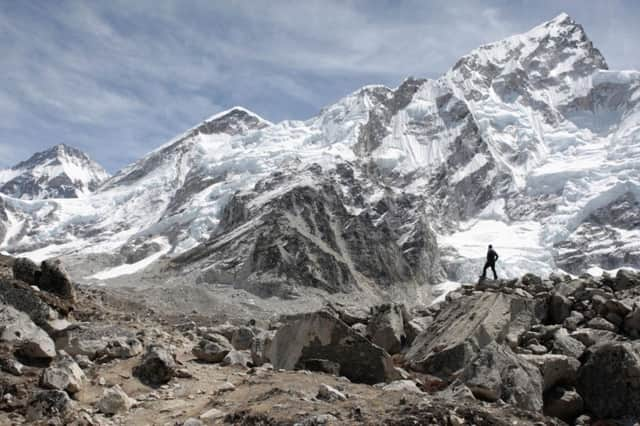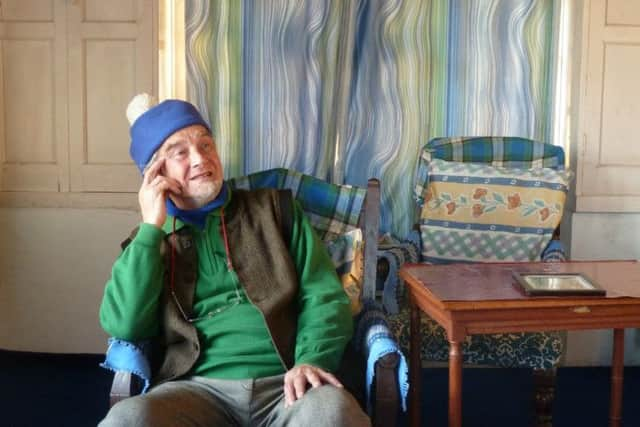A passion for India


Out of the blue, I mention The Yorkshire Post to Bill Aitken. His face lights up. “The Yorkshire Post!” he exclaims. “It saved my life!” Not a line you necessarily expect to hear 6,000ft up in the Himalayas with the late afternoon mists swirling in the valley below.
It’s a chilly winter day and as he pours the tea at his home in the North Indian hill station of Mussoorie, 80-year-old Aitken, a long-established and charismatic travel writer, is swathed in pullovers and cardigans and is wearing a woolly hat with a bobble as big as an orange. He’s seen a lot of Indian winters. More than half a century ago, after graduating from Leeds University, he hitch-hiked to the sub-continent and has stayed ever since. “I’m the founding father of the hippies,” he smiles.
Advertisement
Hide AdAdvertisement
Hide AdIn 1959, Scottish-born Aitken decided to supplement his degree in Comparative Religion by getting “a first-hand feel” of the world’s living religions. “So I said goodbye to my girlfriend, hitched to Canterbury, crossed Europe and carried on though Yugoslavia. I wore a kilt as far as Istanbul – a good gimmick for getting a lift – but then posted it home; it was so bloody hot.”


He made his way to Jordan, to discover if he really could float in the Dead Sea (he could), and was hoping for a lift to Jerusalem. “Suddenly a military jeep pulled up. They thought I might be a spy. I said: ‘No, I’m from England and I’m hitching to India.’ And I had this to prove it...”
He jumps up from his chair, pads across to the next room, and comes back with a framed, slightly yellowing, photograph from The Yorkshire Post. Published shortly before he left England, it accompanied an article about his travel plans and showed him (in signature kilt) escorting three chic young female freshers around Leeds University three years earlier.
“It convinced the military police that I was a bona fide traveller and they gave me a lift to Jerusalem,” he says. “Without that cutting I could have been bumped off and thrown in the Dead Sea!”
Advertisement
Hide AdAdvertisement
Hide AdHis journey continued across Iran and Afghanistan and he eventually arrived in Calcutta, with two rupees in his pocket, six weeks after setting off from England. He had originally planned to carry on hitching, “but I said to myself: ‘You’ve found what you wanted, why go any further?’” What exactly had he found? “A four-letter word: ‘Love’. Everyone hated Calcutta; I loved it.”
He had no previous Indian connections (“though I was always a vegetarian; at Christmas I would have a boiled egg”), but the culture appealed so much that he spent a year teaching in the city.
And then he stayed on in India, living for 12 years in Himalayan ashrams, contracting typhoid at a village festival, and on one occasion fasting for 50 days. He became a naturalised Indian citizen and in 1972 settled in Mussoorie, a traditional summer refuge from the heat of the plains. The British who once made the tortuously twisting journey up to the hill station – and to neighbouring Landour – have been largely replaced by Indian tourists, lured by “the hills” and “the snows”, the forests and the bazaars.
For many years, Aitken’s companion was Prithwi, dowager maharani of the former princely state of Jind. She died five years ago but her face still smiles from photographs around their brightly painted bohemian home. Downstairs are reminders of Prithwi’s aristocratic background: a long vestibule with portraits of bewhiskered maharajahs and a dark gallery of their “trophies”, the animals they shot.
Advertisement
Hide AdAdvertisement
Hide AdBill Aitken has written more than a dozen books and many articles about his Indian travels – particularly by motorcycle and steam train. “I came to India to study comparative religion,” he once said. “But I found comparative railways much more interesting.”
He recently told a journalist from The Hindu: “I wrote to share my pleasure in discovering India’s amazing and diverse beauties and to suggest there’s more to life than pining to become prime minister.” The newspaper commented: “No other Indian writer has written so extensively, passionately and lovingly on India’s mountains and her rivers.”
And few have written so entertainingly. In Travels by a Lesser Line, his account of a marathon journey by metre-gauge railway, he recounts sharing a compartment with a railway doctor: “His stories enlivened the way, especially the one about the employee who religiously took leave to attend family funerals. At the end of three years when the applications were re-examined, it was found his maternal grandmother led the field in the funeral stakes and had kicked the bucket no less than 18 times.”
The founding father of the hippies describes himself as “a bit of a semi-recluse now”, last visiting Britain in 1997. “I just quailed about the sheer pace of life there. Here, if you ask someone the time, it can be 15 minutes either way. In Britain it has to be to the second.”
Advertisement
Hide AdAdvertisement
Hide AdAs we finish our tea, he picks up The Yorkshire Post photograph that came to his rescue. “I keep it framed because otherwise the silverfish will get at it,” he says. “Extraordinary that the picture has survived when so much else has fallen by the wayside.”
And he recalls his Leeds student digs in Horsforth and his daily cycle ride to the university through Kirkstall. “I remember it all with great affection; Leeds was a wonderful time in my life. Yorkshire characters tend to stamp themselves on one’s mind... and how I love The Yorkshire Post!”